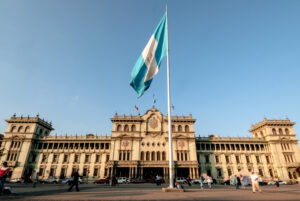Signaling a growing global commitment to hold leaders accountable for atrocities, two international courts this week moved forward with ground-breaking cases to hold the Myanmar government accountable for violent attacks against the Rohingya people.
On Monday, the small West African country of Gambia initiated historic proceedings against Myanmar at the International Court of Justice (ICJ), for committing genocide against the Rohingya people. Underscoring the universal condemnation of genocide, the filing of this ICJ case marks the first time that a country not directly affected by a genocide has broughta case under the Convention on the Prevention and Punishment of the Crime of Genocide. With Rohingya in Myanmar still facing the risk of suffering additional harm, Gambia also asked the ICJ to order provisional measures that require Myanmar to take steps to prevent future attacks and preserve evidence of past attacks. The filing of the case is even more remarkable, given the fact that Gambia had an autocratic leader for two decades until 2017.
Separately, the International Criminal Court (ICC) on Nov. 14 approved Prosecutor Fatou Bensouda’s request to open an investigation into allegations that Myanmar officials committed crimes against humanity, including deporting Rohingya from Myanmar to Bangladesh and persecuting them on ethnic or religious grounds. Although Myanmar is not a State Party to the Rome Statute, the ICC ruled that it has jurisdiction over crimes against humanity when part of the crime occurs on the territory of a State Party—in this case, in Bangladesh. With approval from the Pre-Trial Chamber to open an investigation, the Prosecutor can proceed with collecting evidence, questioning persons under investigation and victims, and taking the steps necessary to build a case against officials of Myanmar.
“We at Robert F. Kennedy Human Rights have been fighting for justice for the Rohingya survivors for years and witnessing this call to justice is important and gratifying,” said Kerry Kennedy, the organization’s president. “During the 2018 visit by our delegation, we saw with our own eyes the result of the horrors committed against the Rohingya people; these new developments give us hope that justice will soon be served and that history won’t repeat itself.”
In 2018, Robert F. Kennedy Human Rights conducted a high-level delegation to Myanmar and Bangladesh and met with Rohingya survivors living in refugee camps in Bangladesh who shared their stories about the atrocities. Beginning in 2016, Myanmar’s military and other state security forces engaged in widespread and systematic attacks on the Rohingya people in the states of Rakhine, Kachin, and Shan. These attacks included mass murder of adults and children, rape and sexual violence, torture, burning of villages, and forced displacement. For the Rohingya people, the cases before both the ICJ and the ICC offer hope that Myanmar will be held accountable for its crimes.
These cases build on previous international efforts to document the genocide and to hold the Myanmar government accountable. Last year, the U.N.’s Independent International Fact-Finding Mission on Myanmar released a 440-page report documenting widespread attacks by the Myanmar military and security forces on Rohingya in Rakhine, Kachin, and Shan States; this followed a 15-month examination including interviews of 875 victims and eyewitnesses. Based on these findings, the U.N. Human Rights Council established the Independent Investigative Mechanism for Myanmar in September 2018 to gather evidence of international crimes and prepare files for criminal prosecution.
Even as these investigations and cases have advanced, the Rohingya people have remained at risk of serious human rights abuses. Since fleeing the genocide in Myanmar, more than one million Rohingya have been living in refugee camps in Bangladesh. The support and emergency shelter provided by the Bangladesh government has been critical to the refugees’ survival. Yet in recent months, the Bangladesh government announced plans to relocate more than 100,000 refugees from camps in Cox’s Bazar to the remote and flood-prone island of Bhasan Char. Refugees named on relocation lists reported that they had not been informed of these plans and did not want to be moved. In September, the government restricted mobile and internet communications in the camps and prevented refugees from obtaining SIM cards, further isolating them.
Earlier this week, Robert F. Kennedy Human Rights joined 38 other human rights organizations in writing an open letter to the Prime Minister of Bangladesh, urging her to protect refugees’ rights to give their free and informed consent to any relocation. We also called on the Bangladesh government to immediately lift the internet and telecommunications restrictions that threaten refugees’ well-being and survival, and to publish the findings of an upcoming U.N. assessment to determine if Bhasan Char can serve as a safe home for refugees.
The cases before the ICJ and the ICC send a powerful message to the leaders in Myanmar and the perpetrators of atrocities everywhere that the world takes seriously its commitment to hold them accountable for their crimes. They send a message of hope to victims and survivors that justice is on their side. And Robert F. Kennedy Human Rights, together with other advocates, sends its unwavering message of support to the Rohingya people, that they are not forgotten and that finding a solution to their current challenges that respects their rights remains our priority.



